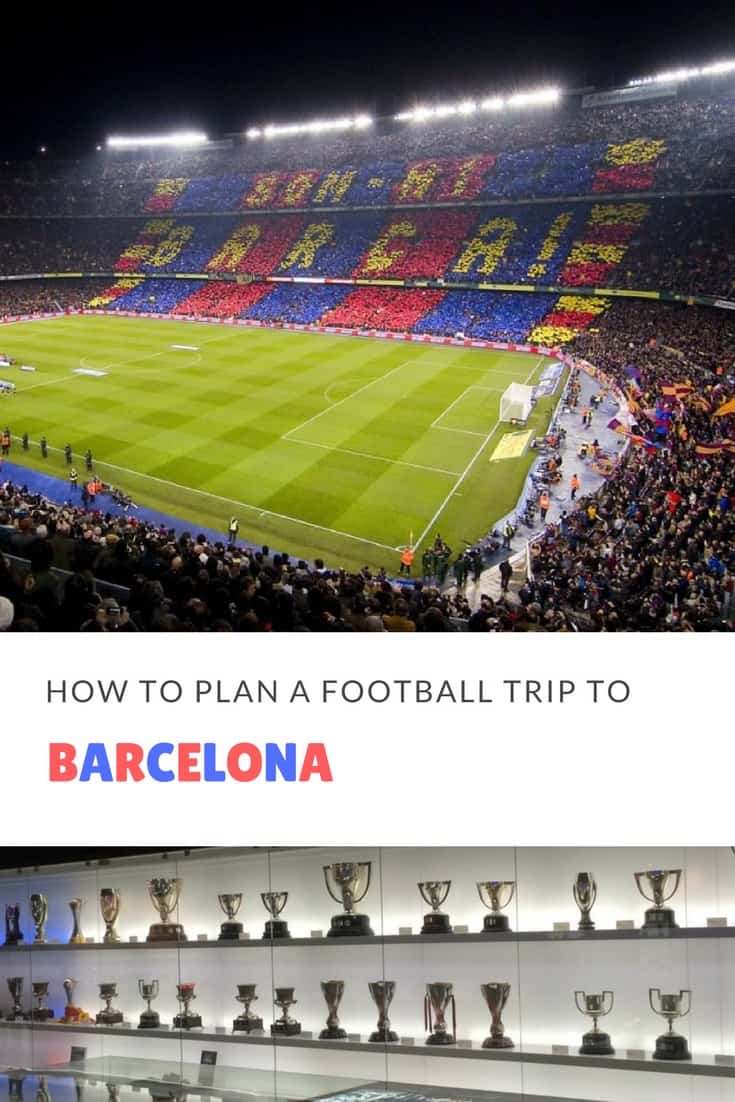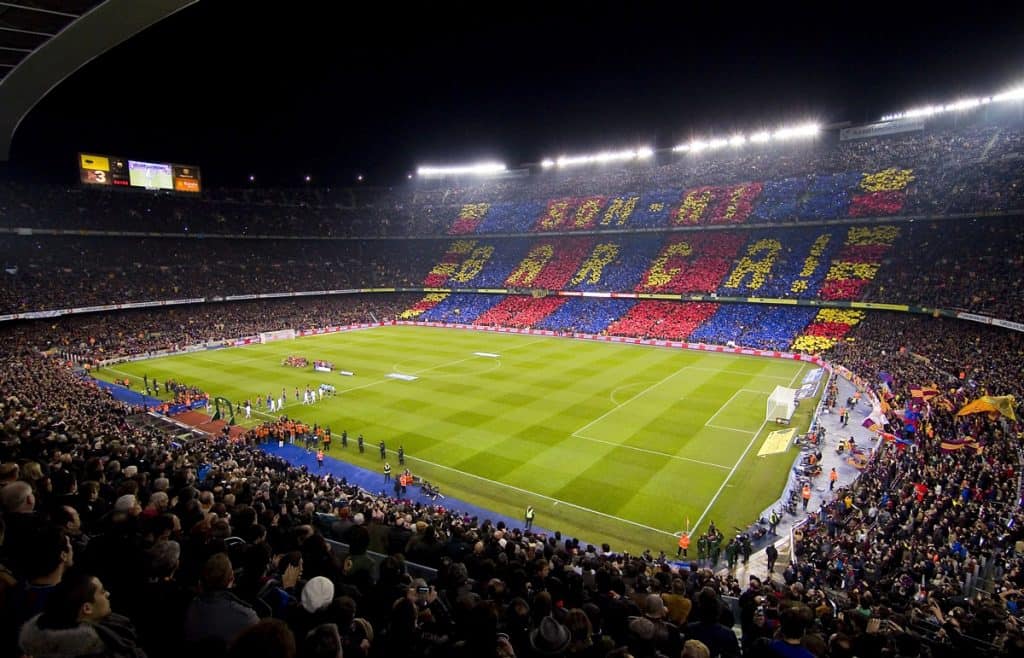
Football fans flock to Barcelona every year in search of a football-themed holiday. Make sure you’re prepared with our guide to help you make the most of your trip.
Interested in a football trip to Barcelona? Of course you are! FCB are one of the most famous and iconic soccer clubs in the world, and the Camp Nou is one of the most famous and biggest sports stadiums in the world.
It just so happens that the club is located in one of Europe’s most alluring cities. So whether you want to take in a game or just tour the stadium, this guide will help you plan a memorable sporting holiday to a fantastic city.
More than a club
The giants of world football love their slogan ‘mes que un club’, which in English means ‘more than a club’. It’s a fitting motto, because that’s exactly what they are.
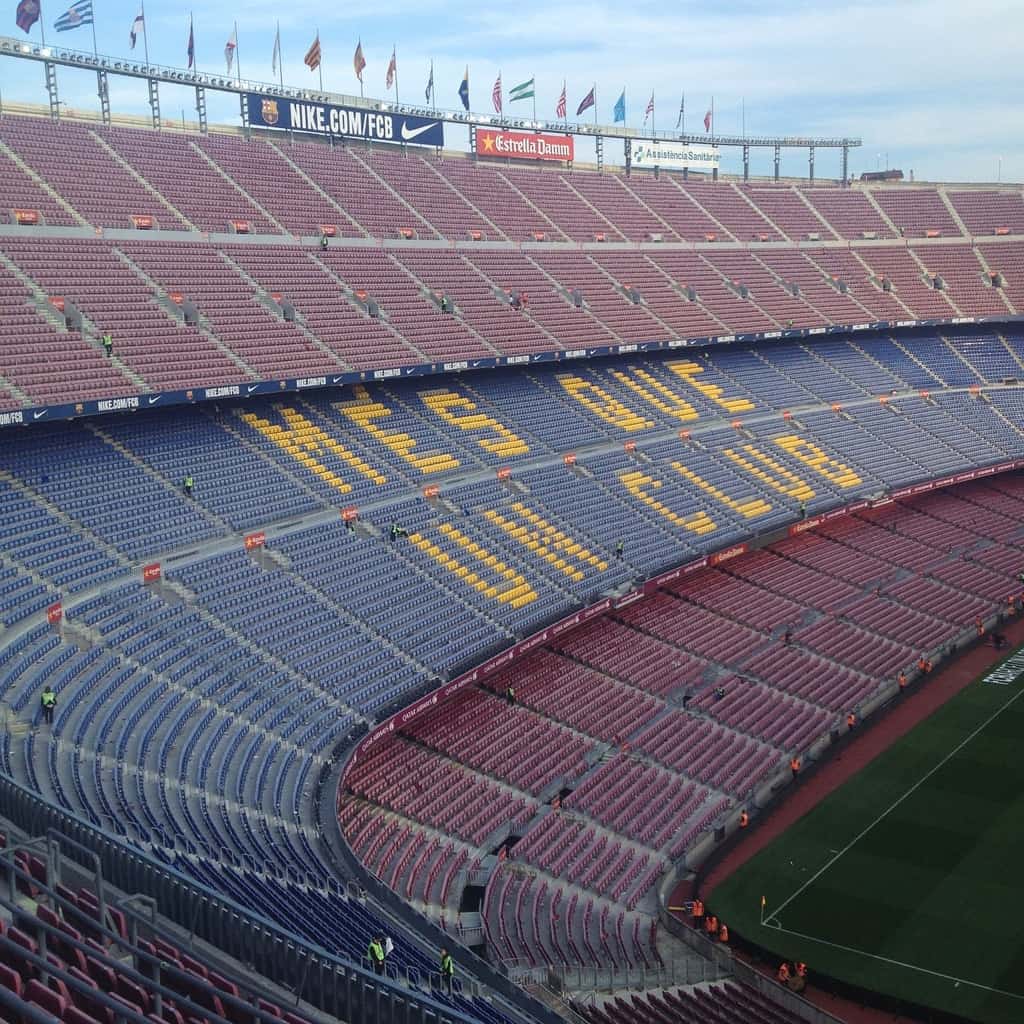
For FC Barcelona are a symbol of not only a city, but the entire Catalan region of Spain. The recent independence movement and controversial elections have just served to heighten that relationship.
The red and yellow stripes of the Catalan flag (and of the independence movement) are just as common a sight as the famous red and blue stripes among the local fan base.
Camp Nou
One of the world’s most famous football stadiums is also one of the biggest. A capacity crowd at the Camp Nou sees almost 100,000 people creating an atmosphere never to be forgotten.
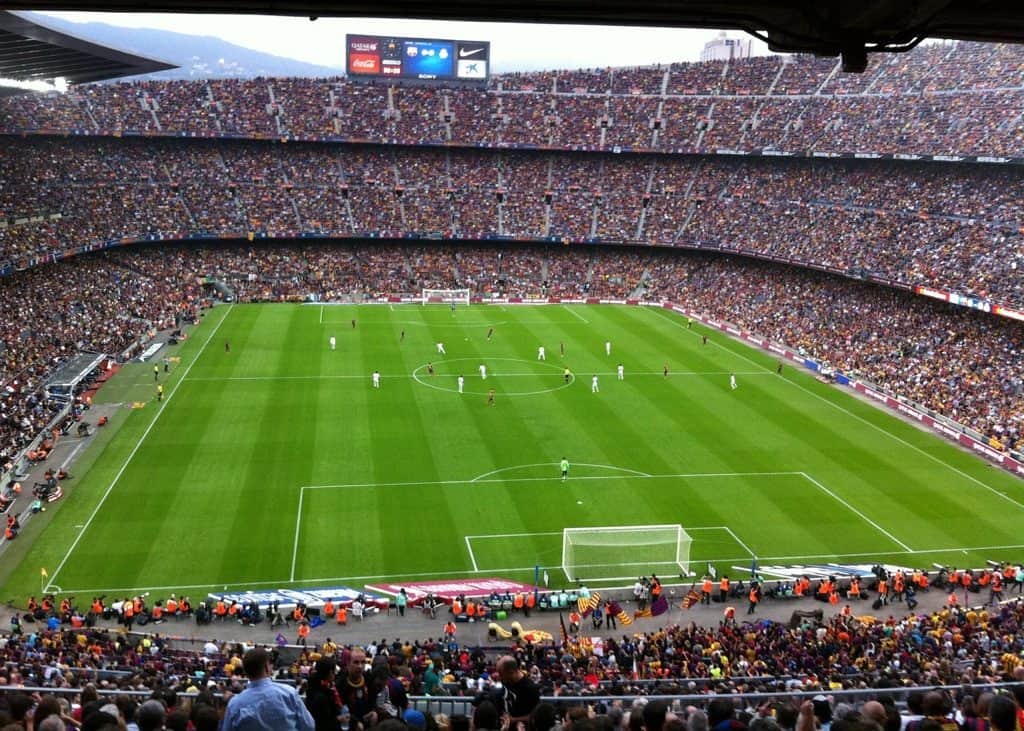
The stadium is scheduled to get even bigger too. At an estimated total cost of €600 million, the expansion plans will add thousands of seats to give a maximum capacity of 106,000, including a canopy over some of the seating areas.
As well as being the home ground of FCB, the stadium has hosted two UEFA Champions League finals, five FIFA World Cup games including the opening game of the 1982 tournament, and the final of the 1992 Olympic Games football tournament.
Some of the modern facilities now include mini-pitches for training matches and a chapel for the players. Opened in September 1957, the stadium does show its age despite renovations in 1995 and 2008, so the expansion is set to improve much of the existing infrastructure too.
One thing to be aware of is that as with all La Liga arenas, no alcohol is served inside the stadium on matchdays. The food offering is basic and so you’re better off making the most of Barcelona’s excellent range of tapas bars and eating before or after the match.
Museum & stadium tour
An undoubted highlight for all football fans is the combined stadium tour and entry to the FC Barcelona museum.
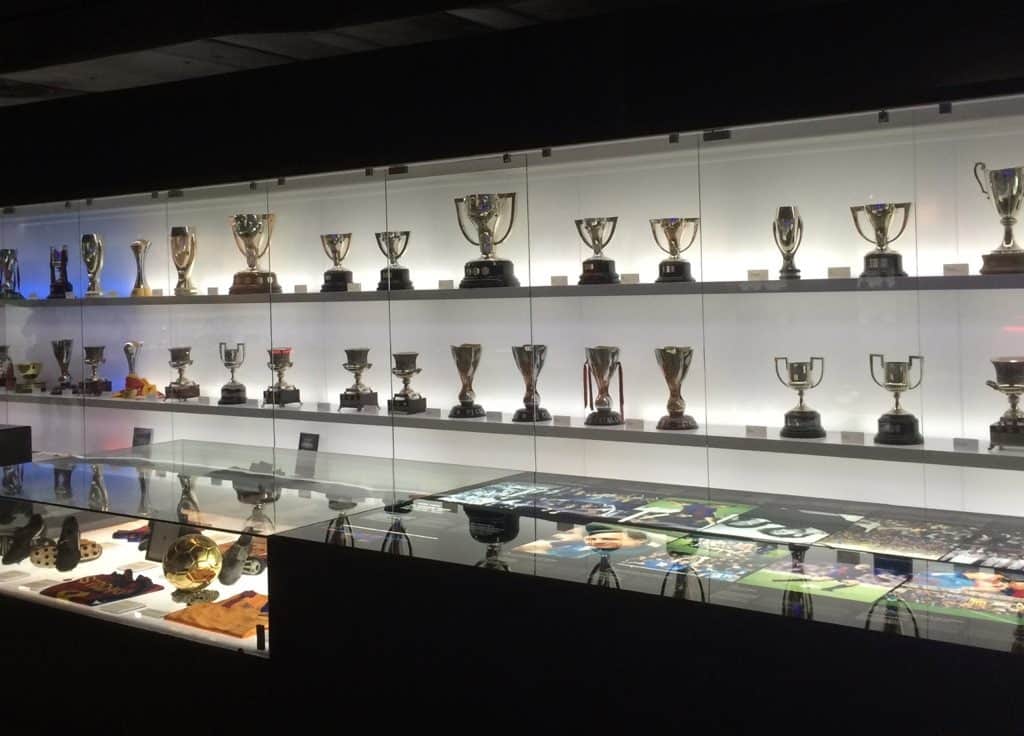
The self-guided tour begins in the museum, where you will learn all about the club’s history and strong connection to the city and Catalonian identity, and see some of the huge number of trophies won by the club.
The tour then proceeds through various parts of the stadium including a tremendous view of the pitch. The great thing about the self-guided nature of the experience is that you are free to take your time, and take as many selfies as you desire!
How to get tickets to a game
While seeing the stadium, taking the tour and exploring the museum will satisfy most football fans, being present for a game is the icing on the cake and what most people really think of when planning a football holidayday in Barcelona.
FCB season ticket holders and members get priority on tickets, but it’s usually possible to get tickets for most games if you book in advance given the sheer size of the stadium.

There’s one problem, though. Due to league rules, the exact date and time of fixtures are only confirmed as little as ten days before the scheduled weekend, so bear this in mind if planning a weekend trip.
Even if you’ve bought tickets, the precise date and time might change. If you want to take the risk, book your travel with a few days of buffer either side of the expected date of the game. There’s plenty to do in the city with those extra days!
El Clasico
It’s Messi v Ronaldo, Catalonia v Castilla, National gainst state, whichever way you look at it, the biggest game in Spanish football is much more than a simple football match. In fact, as one of the most famous club football matches anywhere on the planet, El Clásico draws a TV audience of hundreds of millions from all around the world.
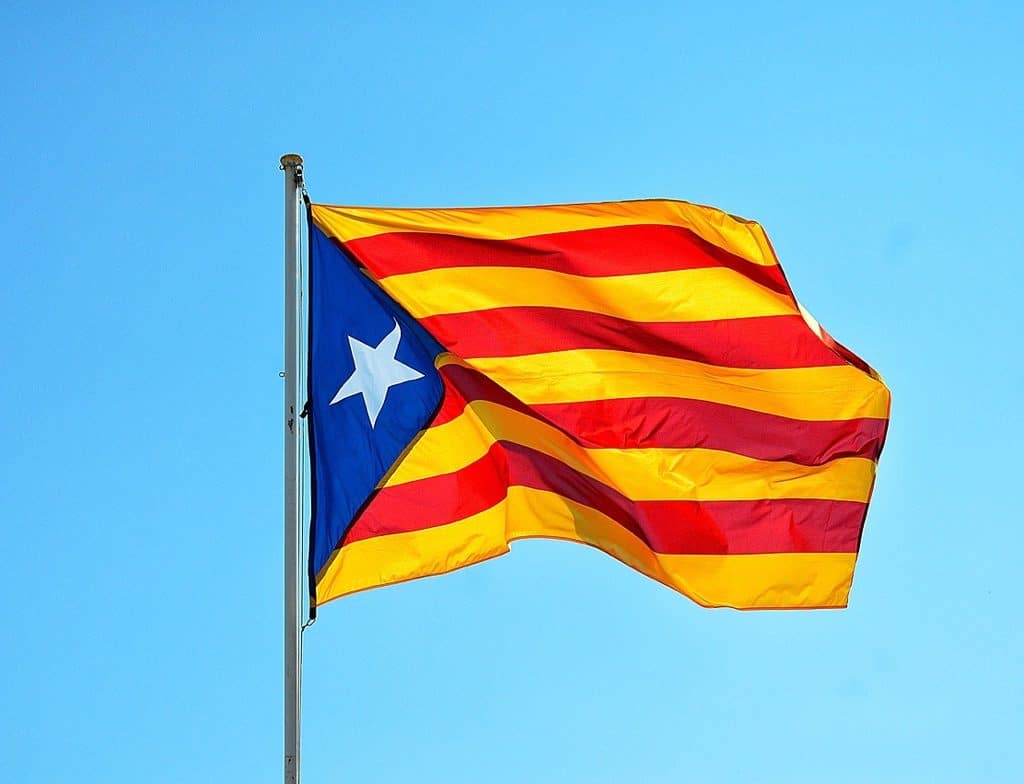
It might surprise you to hear that tickets for El Clasico are not impossible to get. Given the enormous capacity of Camp Nou, tickets are usually available in the run-up to the big game, although they are usually sold out before the day itself. Once the tickets go on sale, which as we discussed above can sometimes be quite close to the date of the fixture, buying tickets via the official club channel is possible for international fans.
Read more about the history of Barcelona v Real Madrid in Sid Lowe’s outstanding book Fear and Loathing in La Liga (Amazon)
Not forgetting Espanyol
There’s more than one club in Barcelona! An alternative option to catch a La Liga game in the Catalan capital is by checking out Espanyol.
Although lacking a league title, Espanyol have lifted the Copa del Rey four times, and reached the final of the UEFA Cup (now known as the Europa League) twice. Despite playing in the shadow of their illustrious neighbours, Espanyol have a proud history and a keen fan base.
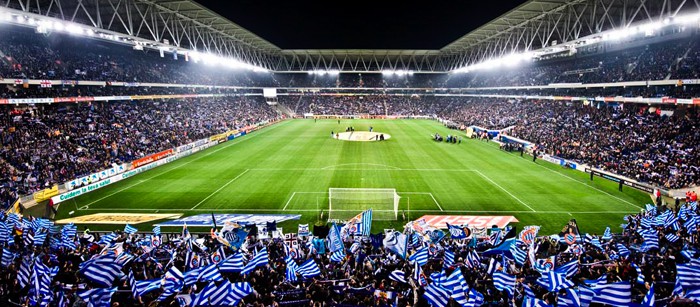
The club play at the smart 40,000-capacity RCDE Stadium on the outskirts of the city, due north of Barcelona Airport. The average attendance is significantly lower than the stadium’s capacity, so getting tickets for most games played here isn’t usually a problem.
FC Barcelona shopping guide
The Camp Nou is home to an enormous superstore that stocks everything from replica jerseys to footballs, toys to t-shirts. The stadium tour ends in the superstore, so during the afternoon the queues to pay can be long. If you know you want to buy a shirt, visit the superstore before taking the stadium tour.
There are also a number of much smaller official FCB stores around the city, the best known of which is on Plaça de Catalunya. Some street merchants on La Rambla also sell shirts, but check carefully to verify their authenticity, or be disappointed when you take the shirt out of the wash!
Beyond the football: The best of Barcelona
Barcelona is a passionate football city, of that there is no doubt. But the Catalan city is passionate in other areas too, everything from architecture to festivals.
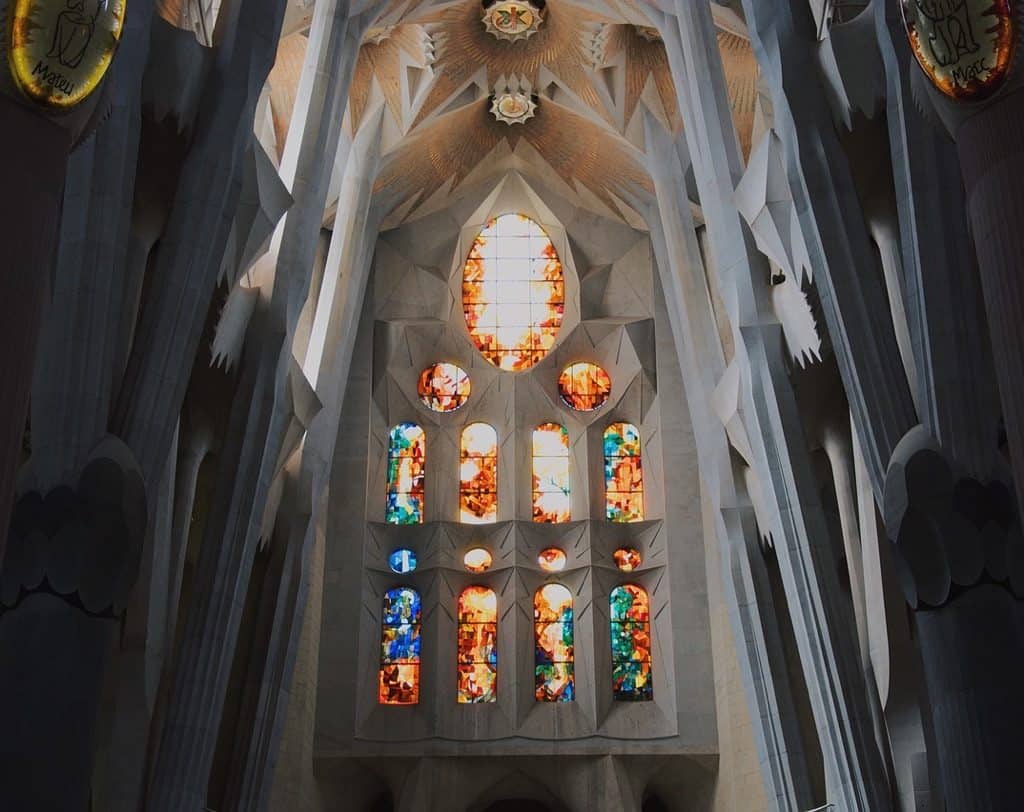
Don’t miss the Sagrada Familia, Gaudí’s famously unfinished church, but buy your tickets in advance to avoid lengthy queues. If architecture is your thing, take a walking tour (led or self-guided) of some of the top sights around the city, or head to the quirky gardens of Park Güell, the other of Gaudi’s principal creations.
Take a stroll through the atmospheric winding and narrow streets of the Gothic Quarter. You’ll end up in the trendy El Born neighbourhood, where you must make time to call in to the Santa María del Mar church regardless of your religious beliefs.
The reason? To see if you can find the FC Barcelona logo incorporated into one of the stained-glass windows. Yes, really!
Where to stay
Most people planning such a trip to Barcelona will think it’s best to stay close to the stadium, but that isn’t so essential. The Les Corts neighbourhood in which the stadium is located is largely residential and there isn’t much to do beyond the obvious.
This means staying near the Camp Nou isn’t essential to enjoying a perfect football weekend in the Catalan capital. A couple of metro lines are within easy walking distance of the stadium, so staying in downtown Barcelona is a good choice.
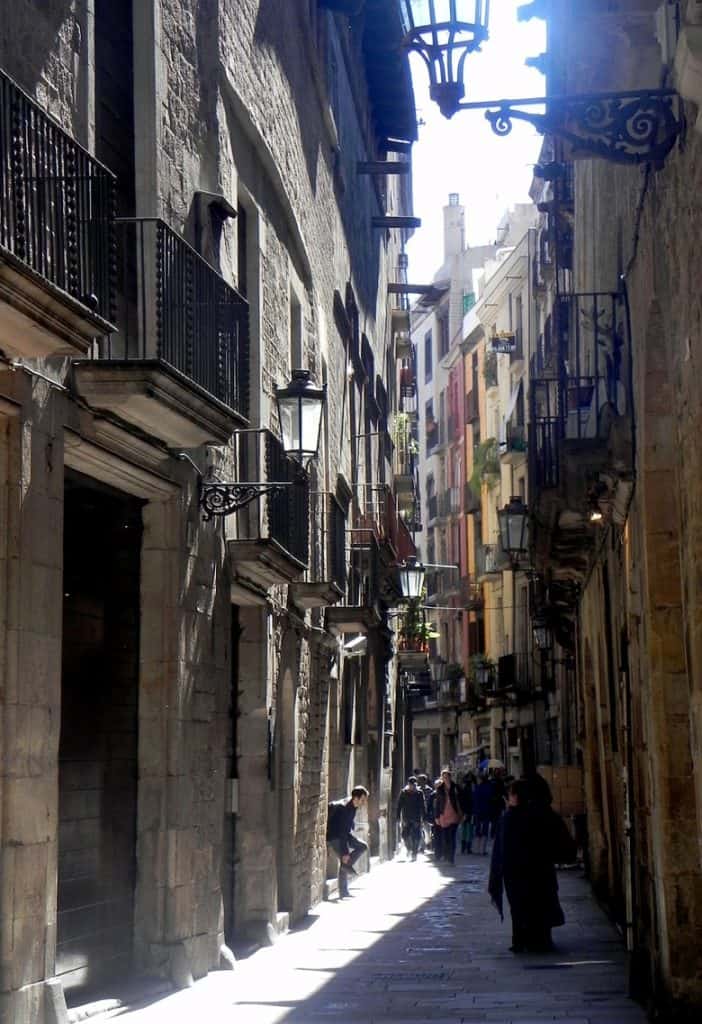
Having said that, some games in La Liga kick off as late as 9pm, so if you are planning to attend an evening match, perhaps you would prefer to be staying in a hotel closer to the stadium? If so, there are a couple of choices within 15 minutes walk of the arena.
Have you been inspired to book a sporting trip to the Catalan capital? If so, why not share your plans on Pinterest? Here’s a pin just for that:
